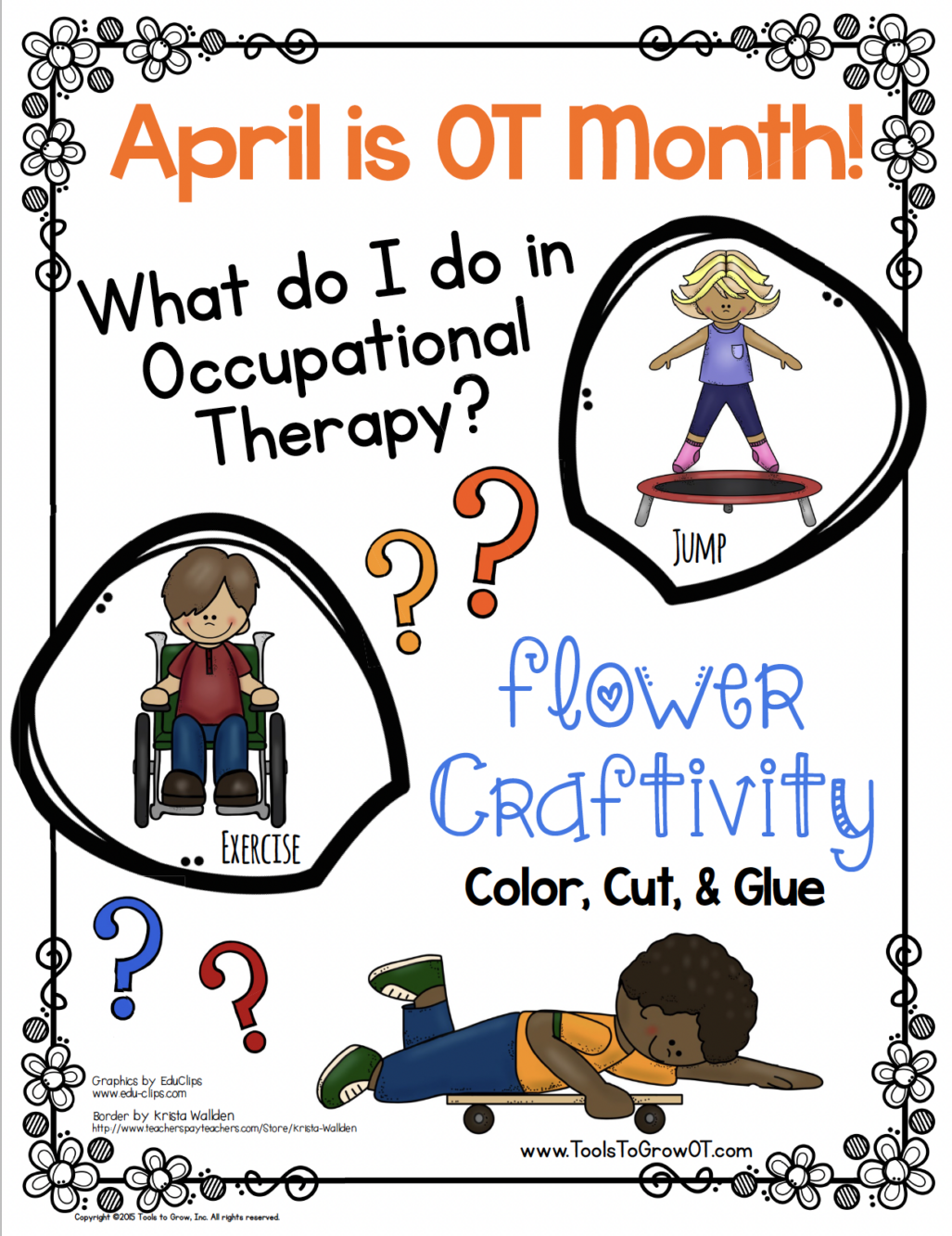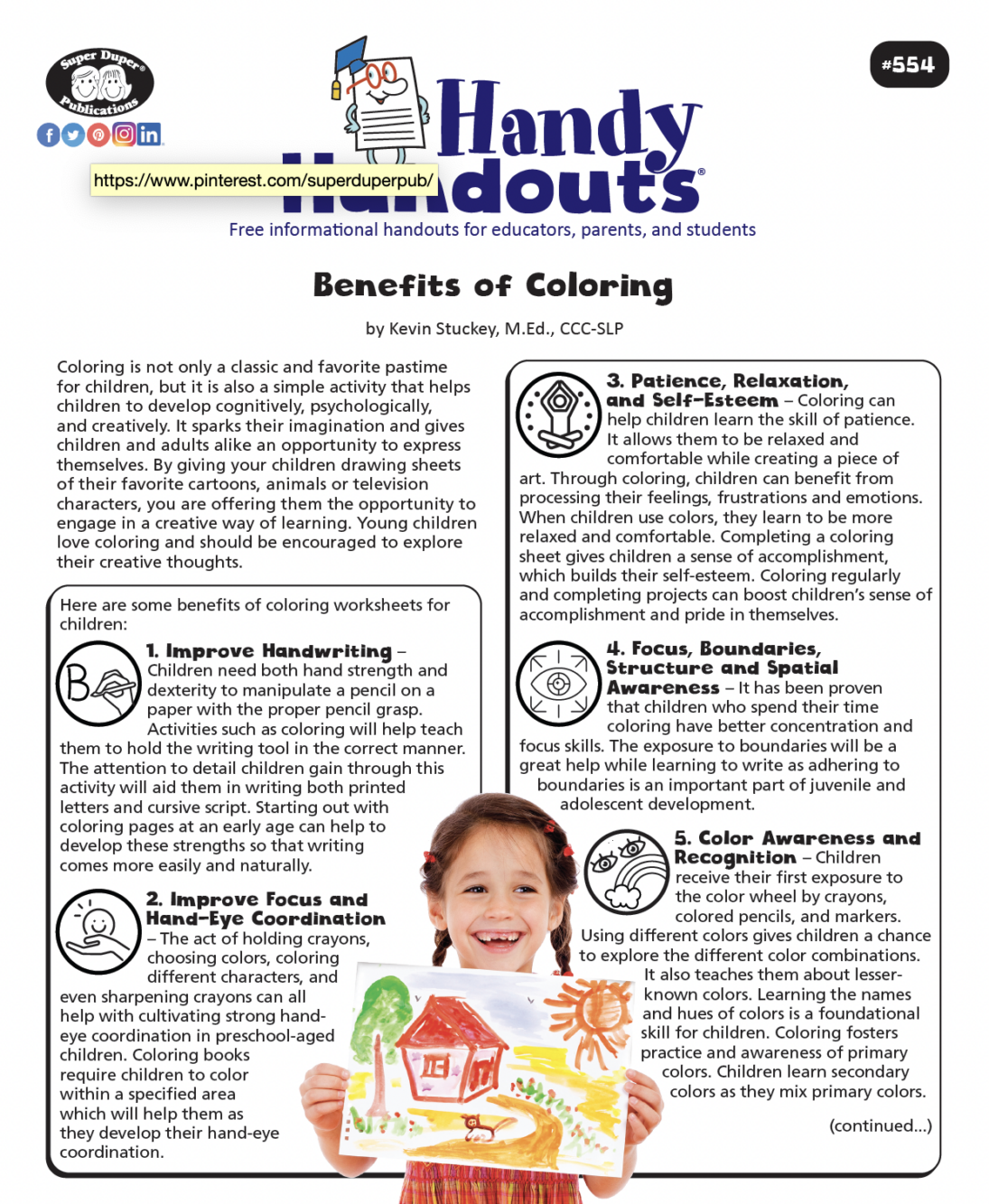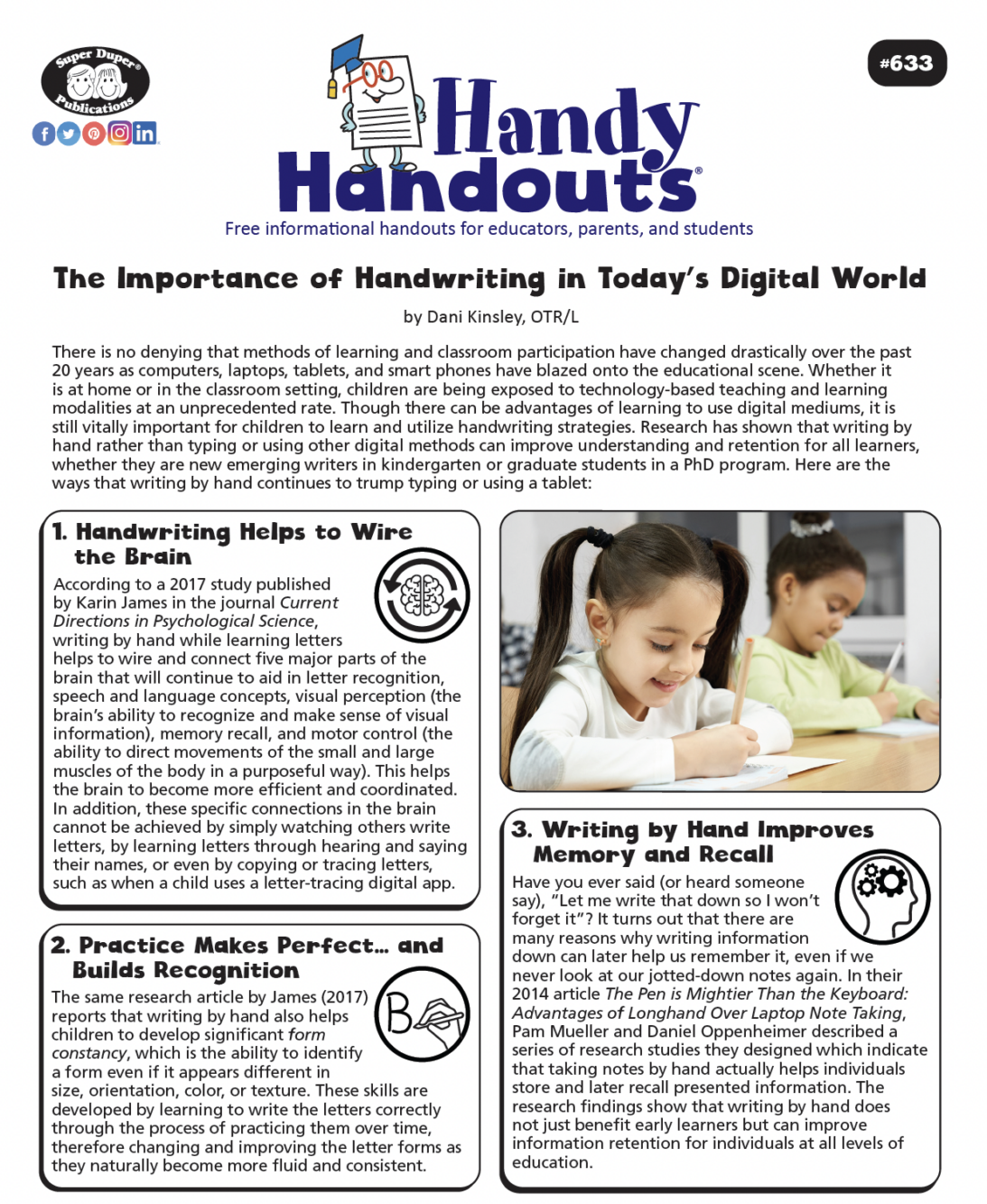There is an old saying, “Get in where you fit in.” With occupational therapy our goal is to get children regulated and ready to exist so that they can have positive and productive life experiences.
Occupational therapy services typically include an individualized evaluation, during which the client/family and occupational therapist determine the person’s goals, customized intervention to improve the person’s ability to perform daily activities and reach the goals, and an outcomes evaluation to ensure that the goals are being met and/or make changes to the intervention plan.
Benefits of Occupational Therapy
Occupational therapy for children can lead to big benefits, especially for kids with learning and attention issues.
- OT can help kids who struggle with everyday fine and gross motor tasks like using a toothbrush, writing on a chalkboard and organizing a backpack.
- OT can also help kids who struggle with self-regulation and sensory processing issues.
Occupational therapists and occupational therapy assistants help people participate in the things they want and need to do throughout everyday activities (occupations).
If a child is struggling to sit still during class and is constantly walking around and wiggling in their seat, an occupational therapy might come in and suggest that the child use a bosa ball or sit disk to sit on rather than a chair while working at their desk.
How Occupational Therapy Works
When you bring your child to occupational therapy, the therapist will observe their strengths and areas of weakness.
From there, the therapist creates a program of activities for your child to work on. The goal is to address things like strength, focus, coordination, sensory reactions and organization. Often this includes activities that help your child feel relaxed enough to be able to sit at a table for homework or school projects.
For example, if your child struggles with focusing during homework time an occupational therapist may ask them to do some full body exercises before doing schoolwork or yoga poses can help kids exert just enough energy so they can sit.
Our occupational therapists use creative and entertaining exercises, activities, strategies and accommodations to help kids develop the skills they need to become more independent.
If you’ve noticed that your child is missing certain developmental milestones, OT could help.
Sometimes kids need a little extra help with certain activities. Occupational therapists work with kids on these activities and more. They can help with self-care skills like brushing teeth, buttoning clothes and using eating utensils. OTs can also help kids with hand-eye coordination skills like writing on a classroom whiteboard or copying in a notebook what the teacher writes on the board. They can also teach fine motor skills like grasping and controlling a pencil, using scissors, or gross motor skills like doing jumping jacks or working on core muscle strength for sitting posture.
The latest research shows that the sooner you start OT, the more effective it tends to be. Some kids learn to concentrate better and complete their schoolwork with more success. Others have increased self-confidence as they learn to do more tasks independently. By helping a child achieve these goals you’re also laying the groundwork for them to navigate the world successfully as an adult.
How can Occupational Therapy help my Child?
At Specialized Therapy Services, our Occupational Therapists (OT) are here to promote health, development and functional independence for your child. The OT will evaluate your child’s current skills for playing, school performance, and daily activities to compare them with what is developmentally appropriate for that age group.
Using a team approach that is child-friendly and involves parents every step of the way, our therapists will work with your child to gain independence while also strengthening the development of fine motor skills, sensory motor skills, and the visual motor skills they need to function and socialize in the world.
Gain Independence
OT’s use exercises, activities, strategies and accommodations to help children develop the skills they need to become more independent.
These can include:
- Self-care or activities of daily living (brushing teeth, buttoning clothes, using eating utensils)
- Hand-eye coordination (writing on a classroom whiteboard, copying in a notebook what the teacher writes on the board)
- Fine motor skills (grasping and controlling a pencil, using scissors)
- Gross motor skills (doing jumping jacks, working on core muscle strength for sitting posture)
- Planning and organizational skills
- Sensory response skills
Improve School Performance
Specialized Therapy Services has worked children with a variety of medical conditions, developmental issues or learning disorders, including:
- Infant and child feeding difficulties
- Developmental disorders including Autism, Asperger syndrome and attention deficit hyperactivity disorder (ADHD)
- Sensory Processing Disorder (SPD) and Sensory Motor Awareness Development
- Handwriting Difficulties
- Visual Perceptual Concerns
- Birth defects or birth-related injuries
- Limited range of motion, including torticollis (wryneck)
- Difficulties with gross motor skills (such as crawling or walking) or fine motor skills (including tying shoes, using utensils and writing)
- Muscle weakness (hypotonia) or tightness (hypertonia)
- Genetic disorders (e.g. Down syndrome)
Growing into a self-sufficient adult may come easy for some; and more challenging for others. Whether it’s feeding or fine motor difficulties, our OT’s can help your child reach maturity with strength and confidence—qualities vital to making it on their own.
Occupational Therapy PDFs
April Is OT Month! Please Feel Free To Download The Forms Below



